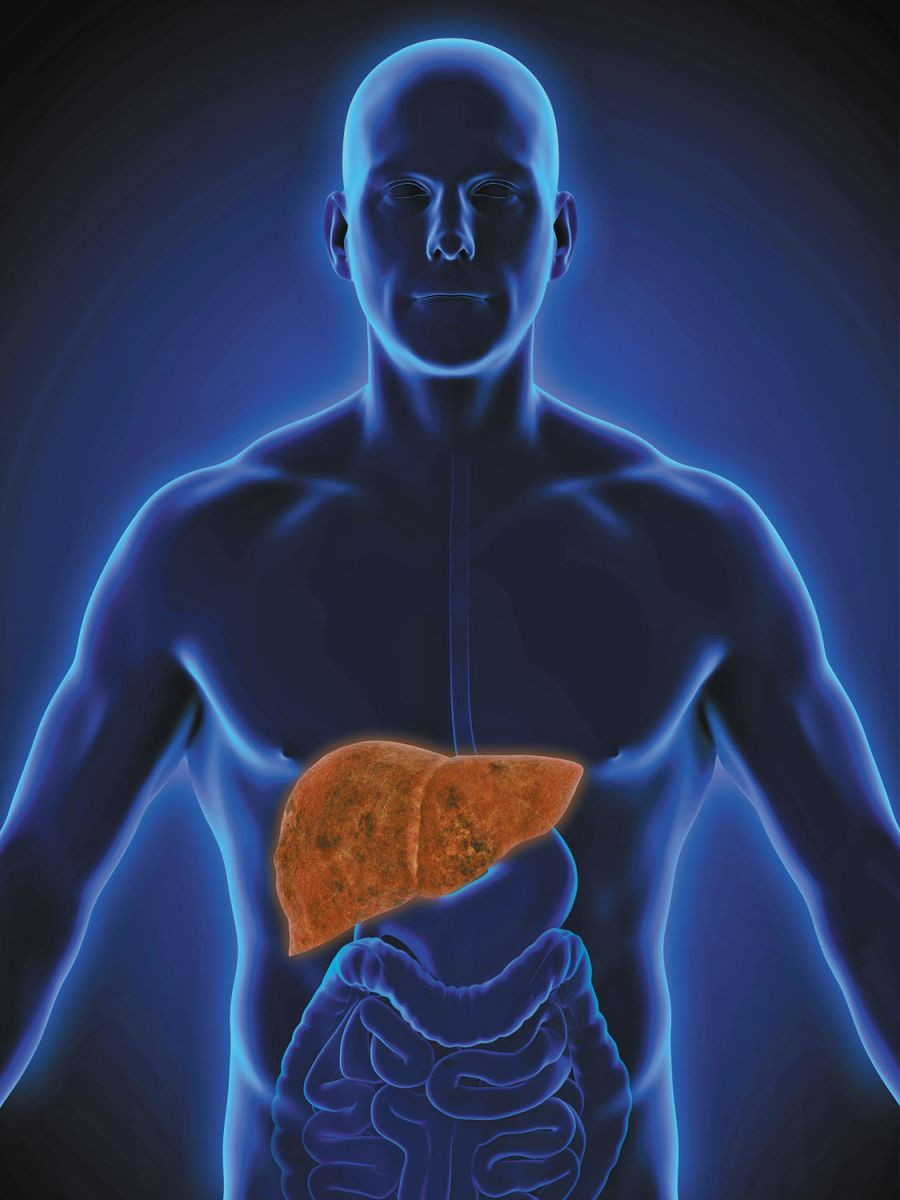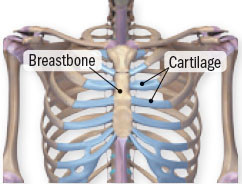
New thinking about plaque in arteries that feed the brain

Want to prevent shifting teeth? Maybe you need retainers

What you need to know about the new dietary guidelines

Food that’s healthier for people and planet can be cheaper, too

New evidence that polyphenol-rich foods help the heart

8 simple ways to reduce ultra-processed foods in your diet

How to curb your stress eating

How to spot Parkinson’s disease symptoms

Heart failure symptoms in women: How they’re different

GERD diet: Foods to avoid to reduce acid reflux
Heart Health Archive
Articles
Salt sensitivity: Sorting out the science
Eating too much salt usually boosts blood pressure, but not in everyone. Understanding the genetic basis of these differences may improve treatment of high blood pressure.
Do you know someone who eats lots of salty food — pizza, pickles, pretzels, and the like — but has naturally low blood pressure? That person may be salt-resistant, which means his or her blood pressure doesn't rise very much in response to a diet high in salt (sodium chloride). In contrast, other people are salt-sensitive, which means their blood pressure rises by 5 points or more if they switch from a low-sodium to a high-sodium diet.
Unfortunately, there isn't an easy test to determine who is salt-sensitive, says endocrinologist Dr. Gordon Williams, professor of medicine at Harvard Medical School. "Still, we know that Americans eat far more salt than they actually need, so it makes sense to advise everyone cut back on salt," he says.
Smartphone apps for managing heart disease
Apps that pair with devices that record data may help your doctor fine-tune your treatment.
Health-related smartphone apps are a dime a dozen, but some are more sophisticated than others. Of special interest for people with heart disease are apps that pair with devices that measure your blood pressure, your heart's electrical activity, or your weight. Data from these apps may help doctors make faster and better informed treatment decisions for their patients, says Dr. Eric Isselbacher, who heads the Healthcare Transformation Lab at Harvard-affiliated Massachusetts -General Hospital.
App acceptability
Contrary to popular belief, the 65-plus crowd is comfortable using apps, says Dr. Isselbacher, who co-authored a recent study looking at the willingness of heart patients to use apps and related technologies. Compared with millennials, older people have been slower to adopt and adjust to smartphone apps. But now that they're using them for ride-hailing services and the like, they recognize that apps are actually pretty simple to use.
E-cigarettes: Hazardous or helpful?
Their efficacy as a tool for quitting regular cigarettes and their long-term safety remain concerning.
Even if you never touch cigarettes, you probably know someone who does (or did) smoke. Nearly half of Americans smoked in the mid-1960s, compared with just 14% today. Still, cigarette smoking is responsible for nearly one in five deaths in the United States, and about one-third of those are due to heart disease.
What about electronic cigarettes (e-cigarettes), the latest smoking trend? These battery-operated devices heat up a liquid, creating a vapor that users inhale and exhale, a practice known as "vaping." Although e-cigarettes were initially targeted to young people, more recent ad campaigns feature middle-aged, long-time smokers who have switched to vaping. Is vaping safer than smoking, especially from a cardiovascular perspective? And can these products help people quit regular cigarettes?
Fatty liver disease: An often-silent condition linked to heart disease
These two common conditions have many overlapping risk factors, but they both respond to healthy lifestyle changes.
The biggest organ inside your body, your liver, lies just below and to the right of your heart. This powerhouse organ performs many vital roles in the body, including processing cholesterol and making proteins that help your blood clot. But as many as one in four Americans has a potentially dangerous accumulation of fat inside the liver. This condition, known as non-alcoholic fatty liver (NAFL), often goes hand in hand with obesity and diabetes. Both of those conditions boost the risk of heart disease, and growing evidence also links NAFL with cardiovascular problems.
"The connection between fatty liver and early signs of plaque in the coronary arteries is increasingly compelling," says Dr. Tracey Simon, a hepatologist at Harvard-affiliated Massachusetts General Hospital (MGH). Excess fat around the liver and other organs in the abdomen—known as abdominal obesity — is another likely related problem. In fact, abdominal obesity seems to accelerate the progression of fatty liver to a more serious form of the problem, nonalcoholic steatohepatitis, or NASH (see "The many faces of fatty liver disease").
Legume of the month: Pinto beans
The most commonly eaten type of bean in the United States, pinto beans are especially popular in southern states, where they may be known as frijoles (Spanish for "beans") or cowboy beans. These oval, tan-colored beans are mottled with reddish-brown streaks, making them appear painted (pinto means "painted" in Spanish).
Once they're cooked, the colored splotches disappear, leaving a light-brown bean with a soft, creamy texture. In Mexico, Central America, and South America, pintos are cooked with epazote, an herb that purportedly helps reduce the flatulence-producing properties of these and other beans. Another tip for avoiding that problem is to add beans to your diet gradually and eat them regularly.
Step lively to a longer life?
Research we're watching
People who walk at a brisk clip may live longer than those who walk slowly — regardless of how much they weigh, a new study finds.
Researchers looked at data from nearly 475,000 adults in the United Kingdom Biobank study, which recruited middle-aged participants from 2006 to 2010. The participants, most of whom were slightly overweight, were asked to describe their usual walking pace as slow, average, or brisk.
A diet that may stave off heart failure
Research we're watching
A plant-focused diet long touted for its ability to lower blood pressure may also help prevent heart failure, according to a new study.
The DASH diet, which stands for Dietary Approaches to Stop Hypertension, emphasizes fruits, vegetables, whole grains, low-fat dairy products, poultry, fish, and nuts while minimizing salt, sugar, and red meat consumption.
Brushing up on heart health
Research we're watching
Taking good care of your teeth — including twice-daily brushing and at least yearly professional cleanings — seems to be linked to better heart health, according to a study in the April 7 European Heart Journal.
The findings were based on data from nearly 248,000 healthy adults ages 40 and older who were part of a national health screening program in Korea. Researchers tracked study participants for a median of 9.5 years and noted higher rates of heart-related problems among individuals who had periodontal (gum) disease or who had lost teeth.
Do you need a calcium scan?
This noninvasive test can predict plaque in the heart's arteries. But it is useful only in certain situations.
Imagine a 57-year-old man (let's call him Bill) who's in pretty good health — a nonsmoker who eats right and exercises regularly. He takes two drugs to treat high blood pressure. Even though his LDL (bad) cholesterol isn't all that high, his primary care doctor suggests that Bill consider taking a statin to lower his risk of a heart attack.
Bill is a little hesitant to add another drug to his daily regimen, so his doctor tells him about a test that may help with the decision: a coronary artery calcium scan. This noninvasive test, which can reveal dangerous plaque in the heart's arteries, has been available for more than a decade. But calcium scans (as they're often called) are now recognized in official guidelines and are being used far more often than in the past, says Dr. Ron Blankstein, a cardiovascular imaging specialist and preventive cardiologist at Harvard-affiliated Brigham and Women's Hospital.
Chest pain that's not a heart attack
Ask the doctor
Q. My brother went to the emergency room because he thought he was having a heart attack. Instead, he was diagnosed with costochondritis. What is that?
A. Costochondritis is caused by inflammation of the cartilage between the ribs and the breastbone, called the costosternal joints (see illustration). This uncommon condition can trigger a stabbing, aching pain that's often mistaken for a heart attack.

New thinking about plaque in arteries that feed the brain

Want to prevent shifting teeth? Maybe you need retainers

What you need to know about the new dietary guidelines

Food that’s healthier for people and planet can be cheaper, too

New evidence that polyphenol-rich foods help the heart

8 simple ways to reduce ultra-processed foods in your diet

How to curb your stress eating

How to spot Parkinson’s disease symptoms

Heart failure symptoms in women: How they’re different

GERD diet: Foods to avoid to reduce acid reflux
Free Healthbeat Signup
Get the latest in health news delivered to your inbox!
Sign Up











